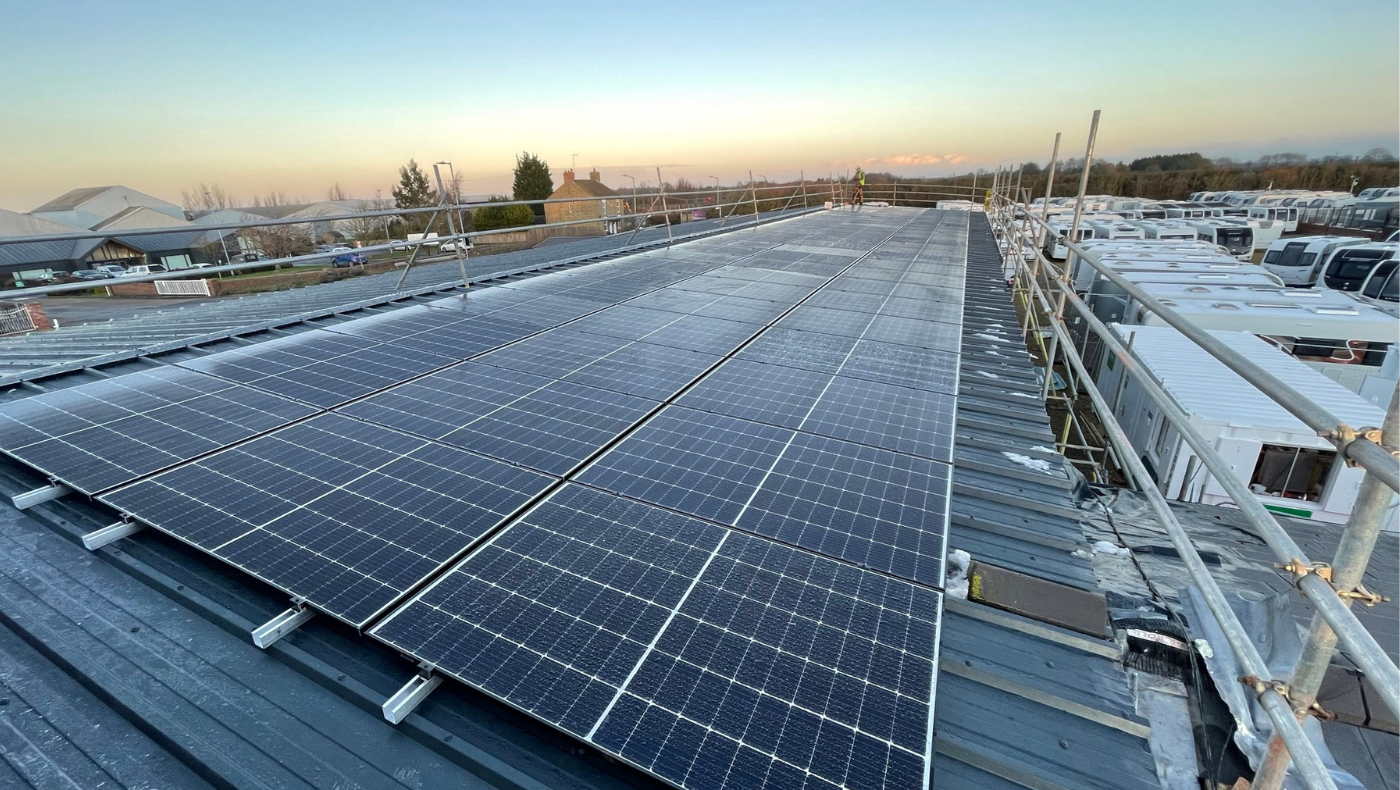Planning Permission for Commercial Solar: What UK Businesses Need to Know
As more UK businesses turn to renewable energy, commercial solar panels have become a popular solution to reduce costs and carbon emissions. However, one common question arises early in the process: Do I need planning permission for commercial solar panels? Understanding UK planning rules for solar panels on business premises is essential before installing a system.
In this guide, we explain the regulations, exceptions, and best practices to ensure a smooth installation process that complies with legal requirements.
Do I Need Planning Permission for Commercial Solar Panels?
In most cases, commercial rooftop solar installations do not require planning permission thanks to permitted development rights granted under UK planning law. These rights allow many types of solar systems to be installed without formal applications, provided certain conditions are met.
However, there are exceptions. Businesses operating in conservation areas, listed buildings, or with installations that significantly alter the appearance of a property may still need to seek planning approval. It’s important to evaluate your property’s status before moving forward.
UK Planning Rules for Solar Panels on Business Premises
Planning rules for solar panels on commercial buildings in the UK are defined to ensure installations are safe and do not negatively impact the environment or neighbouring properties. The key guidelines include:
Rooftop systems must not protrude more than 200mm beyond the roof slope.
Rooftop systems on commercial properties must have a gap of 1000mm between the edge of the roof and the array.
Panels must not be installed above the highest part of the roof (excluding chimneys).
Ground-mounted systems have height and area restrictions.
Equipment must be sited to minimise visual impact.
If the building is located in a sensitive area, such as a World Heritage Site or National Park, the rules may be stricter.
Commercial Rooftop Solar Planning Permission in the UK: Exceptions to Watch For
While most commercial solar panel systems fall under permitted development, there are notable exceptions where planning permission is required:
Properties in designated areas (e.g. conservation zones): These areas are subject to stricter regulations to preserve the local character and visual aesthetics. Any external change, including solar panels, may require detailed planning approval.
Listed buildings, where any exterior change must be approved: Listed status protects architectural and historical significance, meaning that even minor alterations like panel mounting may need listed building consent in addition to planning permission.
Installations that may cause glint or glare affecting neighbours or road users: Solar Panels installed at certain angles or in close proximity to roads, residential windows, or airports may require assessment for light reflection risks, particularly if they pose safety or nuisance concerns.
Systems that involve significant structural changes to the building: If solar panels require strengthening the roof, altering rooflines, or adding external supports, these structural modifications often fall outside permitted development and need formal planning review.
In such cases, businesses should consult with their local planning authority or work with solar providers experienced in navigating regulatory frameworks.
Solar Panel Regulations for Commercial Buildings in the UK
Beyond planning permission, there are solar panel regulations for commercial buildings in the UK that focus on safety, performance, and grid compliance:
Compliance with Building Regulations Part L, which covers energy efficiency: Solar installations must demonstrate that they contribute to reducing the building’s carbon footprint and improving its overall energy performance, aligning with national sustainability goals.
Electrical standards including wiring regulations (BS 7671): All solar PV systems must comply with the IET Wiring Regulations to ensure safe design, installation, and maintenance of electrical components.
Roof load capacity assessments to ensure structural safety: Engineers must evaluate whether the building's roof can safely support the added weight of solar panels and mounting systems, especially for older or non-standard structures.
Approval from your Distribution Network Operator (DNO) for grid connections: Any commercial system that exports electricity to the national grid must be reviewed and approved by the local DNO to ensure it doesn't overload or destabilise the network.
Adhering to these standards not only ensures safety but can also streamline the approval process and avoid costly delays.
How to Check if You Need Planning Permission
To determine whether your project requires permission:
Visit the Planning Portal for general guidance.
Contact your local planning authority for site-specific advice.
Check the status of your property (e.g. listed, conservation area).
Request a pre-application enquiry to gain clarity before applying.
Alternatively, consult with a specialist like Grid Neutral, who can assess your site and manage the permissions process.
Why Working With a Specialist Makes the Process Easier
Installing solar panels on commercial buildings involves more than just hardware. Navigating planning permission, regulations, and grid approvals can be time-consuming and complex. By partnering with an experienced solar provider, businesses can avoid delays, ensure compliance, and optimise system performance.
At Grid Neutral, we offer full support from initial consultation to post-installation care. Our team ensures that your commercial solar installation meets all planning and regulatory requirements.
Making Commercial Solar Simple
With the right support, installing commercial solar panels is straightforward and rewarding. While some businesses may need to apply for planning permission, most will qualify under permitted development. Understanding the nuances of UK planning rules for solar panels on business premises is key to avoiding obstacles and maximising your investment.
Looking for advice on your commercial solar installation? Grid Neutral is here to help. Reach out for a no-obligation consultation.


